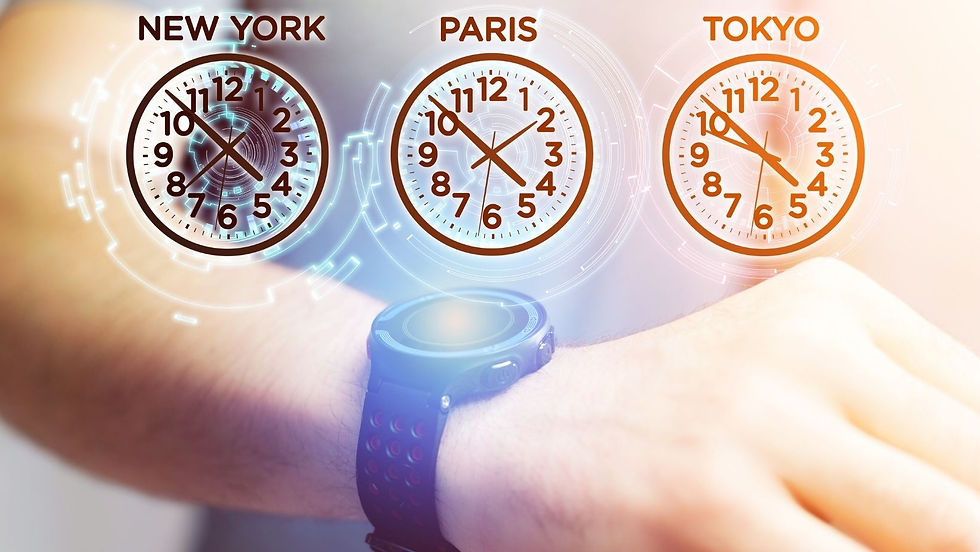If you're concerned about vaginal odour, you're not alone. It's a common issue that many women struggle with. Maybe it was during your teenage years when you were first starting to get your period. Or maybe it's something you've dealt with throughout your adult life. Either way, it's always an embarrassing and inconvenient issue.
The good news is, that there's likely a simple explanation for your vaginal odour. In this post, we'll dive into the most common causes of vaginal odour and give you some tips on how to address them.

Got Vaginal Odour? Here's What Might Be Causing It
Vaginal odour is one of the most common questions that OB-GYNs get. But there's no need to be embarrassed—it's a very common issue. There are many different causes of vaginal odour, and below are the common possible reasons:
Bacterial vaginosis (BV) - Vaginal odour: fishy
Bacterial vaginosis (BV) is a condition that happens when there’s an overgrowth of bacteria in the vagina. This can cause the vaginal pH to become imbalanced, which can lead to itching, burning, and other symptoms. Although BV is usually harmless, it can sometimes lead to more serious problems like pelvic inflammatory disease (PID).
There are many different kinds of bacteria that live in the vagina, and they’re constantly changing. Normally, there’s a balance of good and bad bacteria. But when there’s an overgrowth of bad bacteria, it can cause BV.
Vaginal Candidiasis - Vaginal odour: yeasty
Candidiasis is a fungal infection that can affect any part of the body but is most commonly found in the mouth, throat, GI tract or vagina. The infection is caused by a type of yeast called Candida, which is normally present in the body in small amounts. However, if the body's natural balance is upset, this yeast can grow out of control and cause an infection.
Vaginal candidiasis, also known as candida vulvovaginitis or vaginal thrush, is a common condition that affects women of all ages. The most common symptom of vaginal candidiasis is itching, but other symptoms may include burning, redness, and cottage cheese-like discharge.
Trichomoniasis - Vaginal odour: pungent and fishy (similar to BV)
Trichomoniasis is a sexually transmitted infection (STI) caused by a single-celled protozoan parasite called Trichomonas vaginalis. Although the infection is usually asymptomatic in men, it can cause vaginitis in women, with symptoms that include itching, burning, and abnormal discharge.
The parasite is typically spread through sexual intercourse, but can also be transmitted through contact with contaminated objects such as towels or toilet seats.
You’re on your Period - Vaginal odour: Metallic
For many women, having menses is a monthly occurrence that comes with certain symptoms. One of these symptoms is a metallic odour that is caused by the presence of iron in the blood.
UTIs and other urinary issues - Vaginal odour: Ammonia
Urine could be the source of an ammonia-like vaginal odour. This can happen if you have a urinary tract infection (UTI). An ammonia-like odour can occasionally be a sign of an unnoticed incontinence problem.
Tampon has been left unchanged for far too long - Vaginal odour: Rotten/ Metallic
If you notice a rotten or metallic odour coming from your tampon, it's time to take it out. This smell is a sign that the tampon is starting to break down and can cause serious health problems if left in too long.

Say Goodbye to Vaginal Odor with These Remedies
If you are concerned about vaginal odour, you must address the underlying cause in order to eliminate it. Maintaining good hygiene is essential for avoiding health issues and unusual odours.
Wash Regularly
Regular cleaning is essential, but don't overdo it. The vagina is extremely acidic, which naturally kills bad bacteria. Warm water is all that is required to wash it away. Unsuitable soaps may aggravate the situation by altering the environment in a way that promotes bacterial growth.
Wear Loose-Fitting Bottoms and Cotton Underwear
Women who wore tight-fitting underwear found that they were more likely to have higher levels of vaginal odour. It could be due to the tighter underwear constricting the airflow to the vagina, which can cause an increase in moisture and bacteria growth.
Maintaining a Healthy Weight
Excess weight can cause changes in hormone levels, which can lead to an increase in sweat production and trapped moisture. These conditions create the perfect environment for bacteria to thrive, leading to vaginal odour.
Taking Proven Probiotic
Probiotics are live microorganisms that are beneficial to human health. Different types of probiotic strains can offer different benefits, so it’s important to choose the right one for you. For example, saccharomyces cerevisiae CNCM I-3856 has been shown to be effective in treating and preventing vaginal infections, such as candida infections and bacterial vaginosis. This help reduces vaginal odour by restoring the natural pH balance of the vagina.
Vinegar or Apple Cider Vinegar
Vinegar has been used for centuries as a cleaning agent. Its acidic properties make it effective at killing bacteria. And that's why some women swear by using vinegar to get rid of vaginal odour.
To use vinegar as a vaginal odour remedy, simply mix 1 part vinegar with 2 parts water pour it into the bath tub or apply it to the affected area with a cotton ball. Do this once or twice a day until the odour goes away.
If you don't like the smell of vinegar, you can also try apple cider vinegar.
Vaginal Odour: When to See a Doctor?
A vaginal odour that necessitates a doctor's visit is frequently accompanied by other vaginal symptoms. If you are experiencing itching, burning, discharge, irritation, or pain, please consult your doctor.
Conclusion
With a little care and attention, you can maintain good vaginal health and avoid any unpleasant smells. So, don’t be afraid to take charge of your own body and give yourself the gift of a fresh and healthy vagina.
Related read:










